The Story Of Mazzaneh
PART II

What is Mazzaneh Gram? Mazzaneh Gram is a visual showcase section for businesses. Sellers can upload photos of their products or services, along with descriptions and prices, organized neatly into separate, categorized albums. This makes it much easier for buyers to quickly browse what they’re looking for without having to scroll through everything. For example, a real estate agent can divide their listings into albums for sales, rentals, and leases—so the customer doesn’t have to dig through unrelated posts.
Another great feature is that sellers can even import content they’ve already posted on their Instagram page and display it directly within Mazzaneh Gram—making it even easier to start showcasing without starting from scratch.
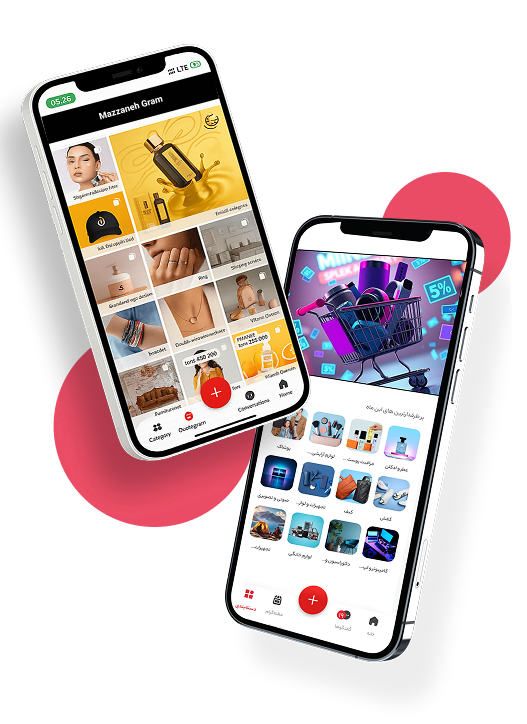

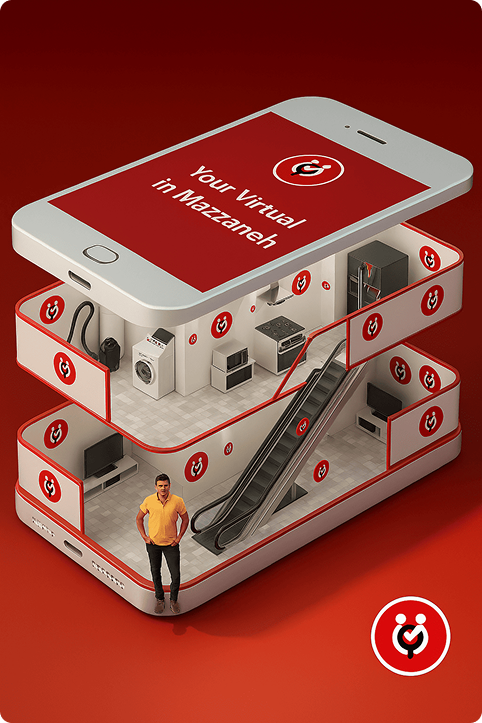
At the same time, it was clear that we couldn’t publicly launch Mazzaneh without having real, active businesses already onboard. But there was another problem too: convincing sellers to list their products on a platform that wasn’t even live yet. And considering how fast prices change in Iran, even if a business agreed and uploaded their products, by the time we officially launched, all those prices would be outdated.
So, if users opened the app and saw just a few products—most with old, irrelevant pricing—it wouldn’t leave a good impression at all. In fact, it could seriously damage user trust from the very beginning.
That’s why we decided to approach seller onboarding in stages.
First, we started by calling businesses whose contact info was already listed on Google. We told them:
“We're registering your business on Mazzaneh for free. Your info will show up on our map, and it’ll help more people find you online. Also, if a customer submits a request related to your products, you'll receive it via notification.”
This approach gave us the opportunity to ask about the products they sell, add that data to our system, and slowly build up our seller database. It also helped us nudge them toward downloading the app—so they could start seeing real buyer requests coming through Mazzaneh Begir.

After we successfully attracted sellers using various methods, we wanted to make sure they had a great experience once they joined. So when they installed the Mazzaneh app and logged into their account, they would be welcomed by a clean, polished, and professional-looking storefront profile.
We started building fully designed business profile pages for them—styled like real e-commerce websites. We added high-quality images as cover and profile pictures, included their business descriptions, location, and product categories right on their page.
In essence, without doing any extra work, each seller now had their own professional online storefront—fully functional and ready for customers to view.
Most importantly, thanks to Mazzaneh’s strong SEO structure, when someone searched the seller’s business name on Google, their Mazzaneh profile usually appeared among the top results (typically in the top 1–10) and often right on the first page.
This gave the sellers a stronger sense of credibility and made the experience feel even more rewarding and attractive for them.

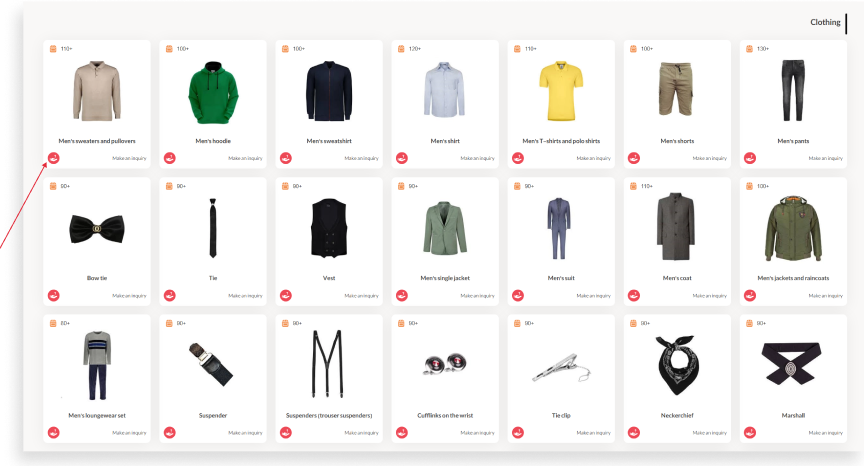
Some businesses chose not to upload any products to their profiles—for reasons we’ve already mentioned—and at that stage, it wasn’t a disadvantage for us either. So instead, we used the information they had provided during registration about the types of products they work with. Based on that, we displayed all their relevant product categories on their store page using visual designs that looked like actual products. We also added a small icon below each one, allowing buyers to easily request a quote (Mazzaneh) for that specific category.


All of this made it possible for sellers to have a clean, fully designed storefront—complete with product categories—without lifting a finger. When a customer visited their profile, they could click on any displayed category (based on the seller’s business type) and submit a brief description of what they were looking for.
That request was instantly delivered to the seller via Mazzaneh's notification system. And even if the seller hadn’t installed the app, we would send the request through SMS or via WhatsApp (which was connected to their Mazzaneh profile). The seller’s response was then shown directly to the customer inside the app.
This system ensured that buyers never felt like the business was inactive. In reality, all we needed was a quick phone call with the seller during onboarding to gather basic information, and then we made their presence on Mazzaneh look fully active.
Sellers loved this approach—it required zero effort on their end. They didn’t have to upload products or manage a store. Instead, they simply received customer requests and responded. For many of them, especially those in wholesale industries, this model was ideal—because they preferred to see the customer’s request first and give a private quote, without exposing their prices to competitors.

Based on our research, one of the common complaints people have about e-commerce websites is that they don’t fully trust the discounts offered by sellers. To address this, we decided to limit the number of discounted products each store can publish to just four items. This limitation encourages sellers to only feature their best and most attractive offers, making the discounts feel more genuine and valuable to buyers.
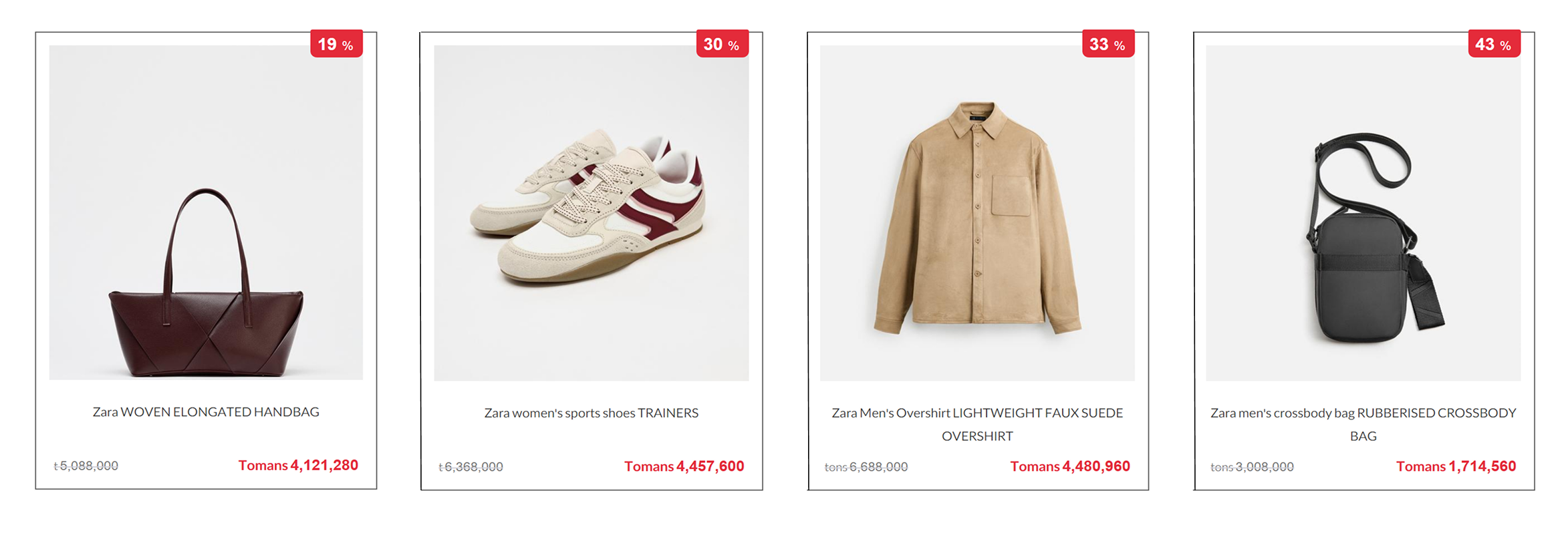

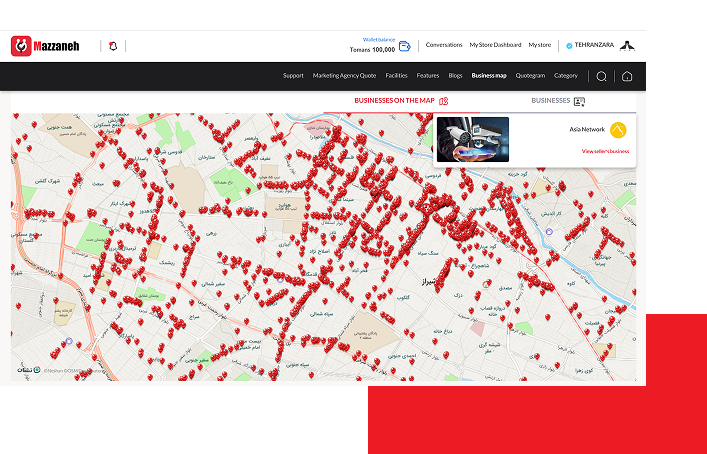
After some time, we realized that due to the severe inflation in Iran, sellers were hesitant to upload many products to their profiles—since any product they listed would only have valid pricing for two or three days. From the buyer's side, if they noticed that a product price was outdated during the quote process, it would immediately damage their perception of the Mazzaneh platform.
That’s when I started searching for a solution.
I told myself: Mazzaneh shouldn’t feel like an empty, lifeless app.
We needed to populate it with more products to spark a sense of competition, increase user engagement, and boost seller motivation.
That’s when the idea came to mind—we should onboard strong and reputable businesses that not only had large product inventories but also offered competitive pricing. On top of that, we decided to target well-established businesses that didn’t have a website but were active and popular on Instagram.
So we began identifying top-performing businesses in every major category—across cities and provinces—so that once Mazzaneh became available nationwide, users in any city (like Esfahan, for example) could open the app and immediately find strong, trusted local sellers in each category. This would create a sense of trust and local relevance.
Once we shortlisted these businesses, we began contacting them with a simple, highly strategic message:
“We’ve selected your store as one of the top 3 mobile retailers in Esfahan. We’re only choosing three sellers per city and category. If you agree to participate, we won’t contact any other mobile sellers in Esfahan. We’ll also transfer your products to Mazzaneh for free.”
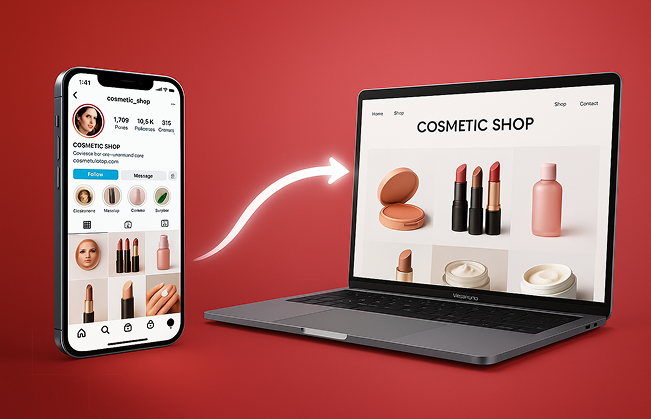

Meanwhile, our technical team was simultaneously developing plugins and infrastructure to support automatic product imports from external sources into the Mazzaneh platform.
This approach significantly enriched our product categories. Over 90% of categories ended up being filled with high-volume, well-stocked sellers. And since product requests from buyers were visually matched to these sellers through attractive, storefront-style layouts (similar to Instagram shop designs we had implemented), users could easily browse, request a quote, or start a conversation with any seller.
Given the large number of registered businesses, I also decided to enhance credibility by displaying all sellers as map pins inside the app. That way, users could explore the map, click on any business pin, view the store profile, and start chatting instantly.
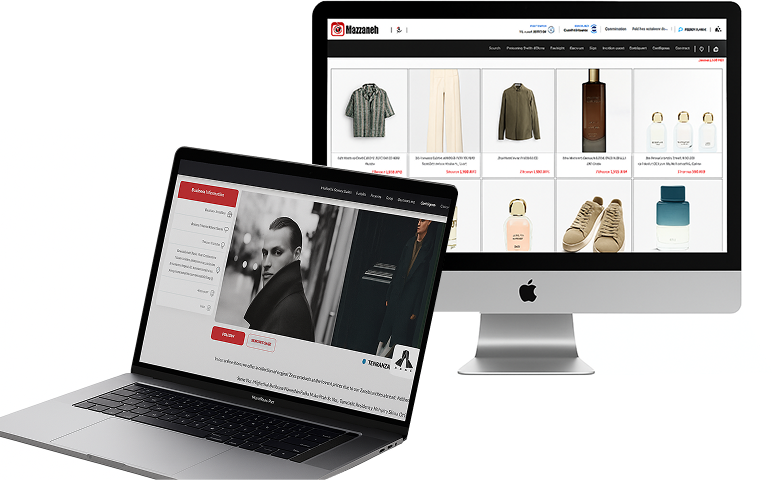
Click to explore the exclusive storefronts built for businesses — and discover the powerful features they receive
In addition, we assigned a team member to manually extract and upload products from top sellers’ Instagram pages into Mazzaneh.
These two key strategies—targeting top-tier sellers and auto-populating their stores—led to a major boost in our business adoption rate.
In fact, in 2024, during just seven months of soft launch, our Google Analytics data showed a traffic growth of 800% to 2000% in visits to our platform.
However, over the past two months, due to Google’s filtering and sanctions against Iranian domains, along with crawling issues caused by server limitations, we haven’t been able to track accurate traffic or search visibility data.
It’s also worth noting that—as previously mentioned—for the past three months, I’ve dedicated all of my time and focus to internationalizing Mazzaneh, a highly demanding and time-consuming process. As a result, I’ve temporarily shifted focus away from the Iranian market to pursue global expansion more strategically.
